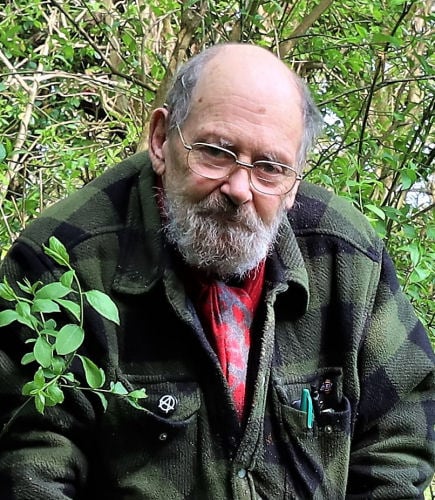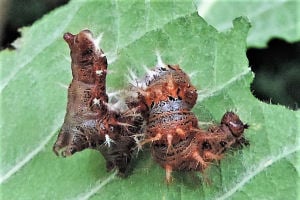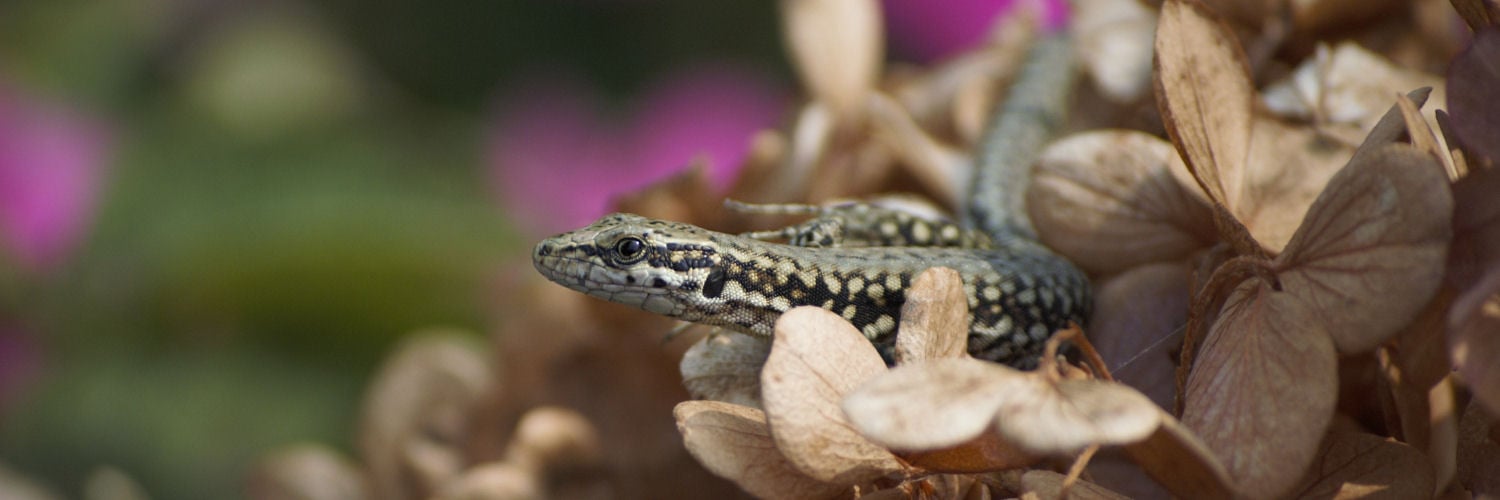Patrick Roper, Ecologist, biodiversity researcher, recorder and naturalist
I was lucky as a child. My father was a farmer on the outskirts of Epping Forest and had a great love of bird life and there was an uncle living nearby who wrote a wildlife column for The Children’s Newspaper. Both of them were of immense help in encouraging me to take a lasting interest in natural history and Epping Forest was like a vast laboratory within which I could pursue my growing interest. I was lucky too in having a school friend who thought of little else but butterflies and moths and we scoured suburban streets and local fields and woods for caterpillars which we raised, like pets, to adulthood.
Through an advert in The Children’s Newspaper I found, and joined, the Amateur Entomologists’ Society and went on several field trips where I met grown up, experienced naturalists who were of great help in developing my field craft and suggesting possibilities for future activities.
As life went on my knowledge and enthusiasm broadened and deepened and for 25 years, until my retirement at age 82, I earnt my living as a consultant ecologist, constantly reflecting on the needs of wider society and their relationship to the welfare of wildlife.

Among other things over the years I undertook an ongoing survey of the wild service tree (Sorbus torminalis) and, in 2003, began what is now generally known as the Square Metre Project in my back garden. The wild service study opened me up to not only the complex relations between the tree, its associated flora and fauna and the wider landscape, but also brought to light much folklore and history on the verge of being forgotten. The oldest specific record I know of, for example, is that of wild service trees being brought from Havering Forest in Essex in 1260 to make crossbows for the king. The species still grows in the Havering area.
The Square Metre started as a short-term monitoring exercise but, throughout 18 years continuous observation, the interest has continued to grow and I have done many TV and radio broadcasts as well as writing accounts and giving talks. Needless to say the flora and fauna change almost every day and understanding why these changes and events occur requires much thought and research.
 It was because of the Square Metre that Ruth Carter of Cambridge OCR contacted me in regard to a GCSE in Natural History. This is a very exciting project. My continuing interest in biodiversity was developed initially due to the unique circumstances of my childhood but many children today will not have similar opportunities and we need successive generations of naturalists. Natural History is so much more than studying flora and fauna. It develops, I believe, some of the so-called ancient parts of the brain that were so important during our long history as hunter/gatherers. All the senses were attuned to wildlife wherever our ancestors went and this has, to some extent, fed through to modern naturalists. Experienced entomologists find endangered beetles in supermarket car parks; ornithologists hear the calls of migrating birds flying high over cities. Skills of observation, identification, patience and other attributes fostered by natural history including intuition will find useful application in a wide range of activities not directly connected with biodiversity. There are also many instances where natural history interfaces with other sciences and with the arts, particularly music and poetry.
It was because of the Square Metre that Ruth Carter of Cambridge OCR contacted me in regard to a GCSE in Natural History. This is a very exciting project. My continuing interest in biodiversity was developed initially due to the unique circumstances of my childhood but many children today will not have similar opportunities and we need successive generations of naturalists. Natural History is so much more than studying flora and fauna. It develops, I believe, some of the so-called ancient parts of the brain that were so important during our long history as hunter/gatherers. All the senses were attuned to wildlife wherever our ancestors went and this has, to some extent, fed through to modern naturalists. Experienced entomologists find endangered beetles in supermarket car parks; ornithologists hear the calls of migrating birds flying high over cities. Skills of observation, identification, patience and other attributes fostered by natural history including intuition will find useful application in a wide range of activities not directly connected with biodiversity. There are also many instances where natural history interfaces with other sciences and with the arts, particularly music and poetry.
To be able to stand still with all the senses alert and the intuition switched on is something experienced naturalists have learnt to do. A GCSE course in Natural History as well as helping to open career paths in natural history and related disciplines can give students not only enhanced abilities to understand, analyse and enjoy different habitats and their flora and fauna, but will be a vital asset in helping to tackle climate change and other global challenges.
I was once when a boy walking up a suburban lane with my father when a robin darted across our path. My dad said, “if we stand perfectly still and silent for five minutes the bird will return and show us where its nest is.” And it did. Geography taught me about places I will never visit, history about events I will never experience. A GCSE in Natural History should awaken an understanding that we are all part of the kaleidoscopic world of nature which we can experience directly close at hand. And it is vital, literally vital, that we educate our children to understand and help to preserve biodiversity in the world around us as well as further afield.
Keep up to date with our proposed GCSE in Natural History and other Cambridge OCR Natural History news by signing up our email newsletter and updates. You can read back issues of our Natural History newsletter here.

